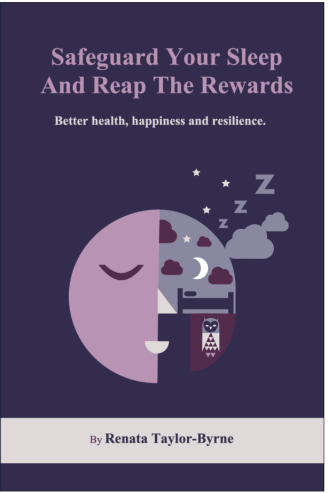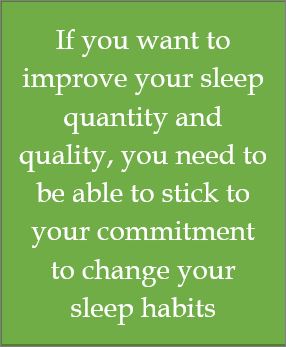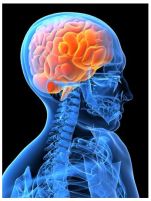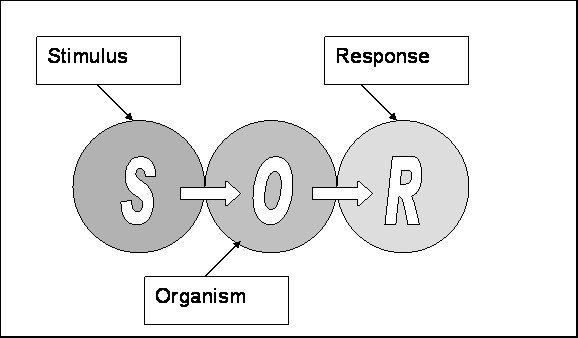Renata’s Blog Post
30th April 2020
Copyright © Renata Taylor-Byrne 2020
~~~
Do you want to feel better tomorrow morning, at no cost?
The amazing power of well-managed sleep to transform your life
~~~
By Renata Taylor-Byrne, Lifestyle Coach-Counsellor
~~~

Introduction
Sleep has a huge impact on your life, in ways you may not even notice!
Let me illustrate that claim for you with a quote from an outstanding sleep scientist:
“You may find it surprising to learn that vehicle accidents caused by drowsy driving exceed those caused by alcohol and drugs combined. Drowsy driving is worse than driving drunk.
“This may seem like a controversial or irresponsible thing to say, and I do not wish to trivialise the lamentable act of drunk driving by any means. Yet my statement is true for the following simple reason: drunk drivers are often late in breaking (applying their brakes!) and late in making evasive manoeuvres.
“But when you fall asleep, or have a microsleep (which means momentary unconsciousness), you stop reacting altogether.
“A person who experiences a microsleep, or who has fallen asleep at the wheel. does not brake at all, nor do they make any attempt to avoid an accident”.
(Matthew Walker, Why We Sleep, 2017) [2]
~~~
 Matthew Walker is an expert in sleep science and has strong opinions about the necessity for sufficient sleep before people set out driving. His reason is the insight that many people sometimes fall asleep for a couple of moments whilst driving, if they are sleep deprived. These are called ‘micro-sleeps’.
Matthew Walker is an expert in sleep science and has strong opinions about the necessity for sufficient sleep before people set out driving. His reason is the insight that many people sometimes fall asleep for a couple of moments whilst driving, if they are sleep deprived. These are called ‘micro-sleeps’.
If you are a driver: Have you ever been aware of having a micro-sleep whilst driving – that means a split-second break in concentration (because you are unconscious!)? If so, you may recall that this happened because you were tired and your eyelids closed or half-shut for a few seconds.
What are the known, measured implications of these kinds of micro-sleeps?
Walker gives the example of micro-sleeping while driving at 30 miles an hour:
This is the bottom line:
“A two second microsleep at 30 mph with a modest angle of drift can result in your vehicle transitioning entirely from one lane to the next. This includes into oncoming traffic. Should you do it at 60 mph, it may be the last microsleep you ever have”. (Page 134)
~~~
Sleep education
Were you taught the importance of getting enough sleep when you were a child; at home or in school? Maybe teachers can’t cover everything, but what about doctors? Have you ever been coached by your GP regarding the importance of sleep, and how it might be affecting your physical health or emotional well-being?
Dr Chris Winter (2017)[1] writes about one researcher, Raymond Rosen, who discovered that, in the four years of medical training given to trainee doctors (in America), most of them had received less than 2 hours of training in sleep science.
 It seems there is a woeful lack of information available to the general public about the importance of sleep. It was not until 2000 that a major book on sleep science was published, and became somewhat popular (with the Book of the Month Club), thus making detailed knowledge from the basic science of sleep relatively widely available, perhaps for the first time. (There have been earlier books on sleep science, but not so widely available).
It seems there is a woeful lack of information available to the general public about the importance of sleep. It was not until 2000 that a major book on sleep science was published, and became somewhat popular (with the Book of the Month Club), thus making detailed knowledge from the basic science of sleep relatively widely available, perhaps for the first time. (There have been earlier books on sleep science, but not so widely available).
This allowed readers to become aware of what happens to their bodies and minds if they don’t get enough sleep.
We now know, as a matter of scientific fact, that insufficient sleep can cause a range of physical and mental health problems; not the least of which is that it reduces your emotional intelligence, which seriously impacts your relationships and life chances. (And there is a definite link to dementia!)
My learning journey
 I was so affected by the contents of Walker’s book that I set out to study the major sources of information on the subject of sleep science.
I was so affected by the contents of Walker’s book that I set out to study the major sources of information on the subject of sleep science.
I began by reviewing a dozen books on the subject, including the following authors: Matthew Walker, William Dement [3], Nick Littlehales [4], Arianna Huffington [5], and several others.
I then set out to summarize the essence of those books, in an accessible form. And in the process, I had to consult a total of 108 sources, including books, journal articles, magazine and newspaper articles, and website blogs.
The results were published in my own book – ‘Safeguard your sleep and reap the rewards: Better health, happiness and resilience’ – last year.
Some of the contents of my book include:
– Explaining our inborn sleep patterns (and how this varies depending on our age);
– the different types of sleep and the importance of dream sleep;
– why sleep deprivation is so bad for our health;
– what is insomnia; and strategies to overcome it;
– how our anger levels and emotional intelligence are dependent on sufficient sleep;
– the link between lack of sleep and impaired fertility;
– sleep’s importance in learning and memory;
– physical and mental strategies for improving your sleep;
– and creating a sleep-enhancing bedroom environment.
Social pressure and employment demands can work against getting sufficient sleep, and so several strategies to manage this effectively are described.
Your sleep needs
 If you know you have problems getting to sleep, or staying asleep; or getting the kind of sleep which restores you, so you awake feeling refreshed, then this book is for you.
If you know you have problems getting to sleep, or staying asleep; or getting the kind of sleep which restores you, so you awake feeling refreshed, then this book is for you.
If you want to improve your sleep quantity and quality, you need to be able to stick to your commitment to change your sleep habits, and assertively alter them in the face of possible pressure from others.
As Dr Phil says, “This is when the rubber hits the road”. And so I have included a chapter on changing your sleep habits; as well as a chapter on how to cure insomnia!
Also, by way of a summary, there are eight key learning points about the ways in which lack of sleep can harm you, and the six crucial ways to protect your sleep are described.
Here is what the book gives you: In summarized form, the most recent research findings about the crucial need for sleep, with full explanations of how to restore your sleep so that you get maximum nourishment and rest!
The main sleep destroyers are described and ways of protecting your sleep are examined.
If you follow the strategies in this book you will, firstly, experience deeper, more therapeutic sleep; and will be able to face the world with resilience and vitality each day.
Secondly, your knowledge of the fundamental importance of protecting your sleep will make you strong in the face of pressure, from outside forces, to neglect it.
Thirdly your health will improve, and your immune system will be strengthened.
Helping children to sleep
 If you are a parent: You also need to think about your children’s sleep, because there is overwhelming evidence that lack of sleep, and anxiety and depression, in children, go hand in hand. Lack of sleep also affects their memory, blood sugar balance, likelihood of obesity, the functioning of their immune system, emotional intelligence, etc.
If you are a parent: You also need to think about your children’s sleep, because there is overwhelming evidence that lack of sleep, and anxiety and depression, in children, go hand in hand. Lack of sleep also affects their memory, blood sugar balance, likelihood of obesity, the functioning of their immune system, emotional intelligence, etc.
You are the major role model for your children, including your approach to sleep. Do you remember how much your parents influenced you? That’s the advantage that you have with your children – you are there every day of the week. And they will copy exactly what you do in relation to sleep.
In my book I explain the sleep needs of children and teenagers, which are not widely understood. If you want to be able to support your children in getting the right amount of sleep, then you need to know the facts.
For more information…
You can get more information about the content of my book here: ‘Safeguard your sleep and reap the rewards: Better health, happiness and resilience’.
~~~
That’s all for now.
Best wishes, and sound sleep!
Renata
 Renata Taylor-Byrne
Renata Taylor-Byrne
Lifestyle Coach-Counsellor
The Coaching/Counselling Division
Email: renata@abc-counselling.org
Telephone: 01422 843 629
~~~
[1] Winter, C. (2017) The Sleep Solution: Why your sleep is broken and how to fix it. Melbourne: Scribe Publications.
[2} Walker, M. (2017) Why We Sleep. London: Allen Lane.
[3] Dement, W.C. (2000) The Promise of Sleep. New York: Random House, Inc.
[4] Littlehales, N. (2016) Sleep: The myth of 8 hours, the power of naps, and the new plan to recharge body and mind. London: Penguin, Random House.
[5] Huffington, A. (2016) The Sleep Revolution: transforming your life one night at a time. London: Penguin, Random House, UK.
 In science as well as popular culture, the body and mind have long been pulled apart, and treated as separate entities. And when they are treated as being connected – as in the modern psychiatric theory of ‘brain chemistry imbalances’ causing negative moods and emotions, the ‘brain chemistry’ in question is taken to be unrelated to how you use your body; what you eat; how well you sleep. It is assumed to be ‘special brain chemistry’ – separate and apart from Lifestyle Factors – which can only be fixed by consuming dangerous drugs!
In science as well as popular culture, the body and mind have long been pulled apart, and treated as separate entities. And when they are treated as being connected – as in the modern psychiatric theory of ‘brain chemistry imbalances’ causing negative moods and emotions, the ‘brain chemistry’ in question is taken to be unrelated to how you use your body; what you eat; how well you sleep. It is assumed to be ‘special brain chemistry’ – separate and apart from Lifestyle Factors – which can only be fixed by consuming dangerous drugs! In the immediate future, lifestyle counselling practice will be a novel service offering for counselling and psychotherapy clients who have realized that:
In the immediate future, lifestyle counselling practice will be a novel service offering for counselling and psychotherapy clients who have realized that: